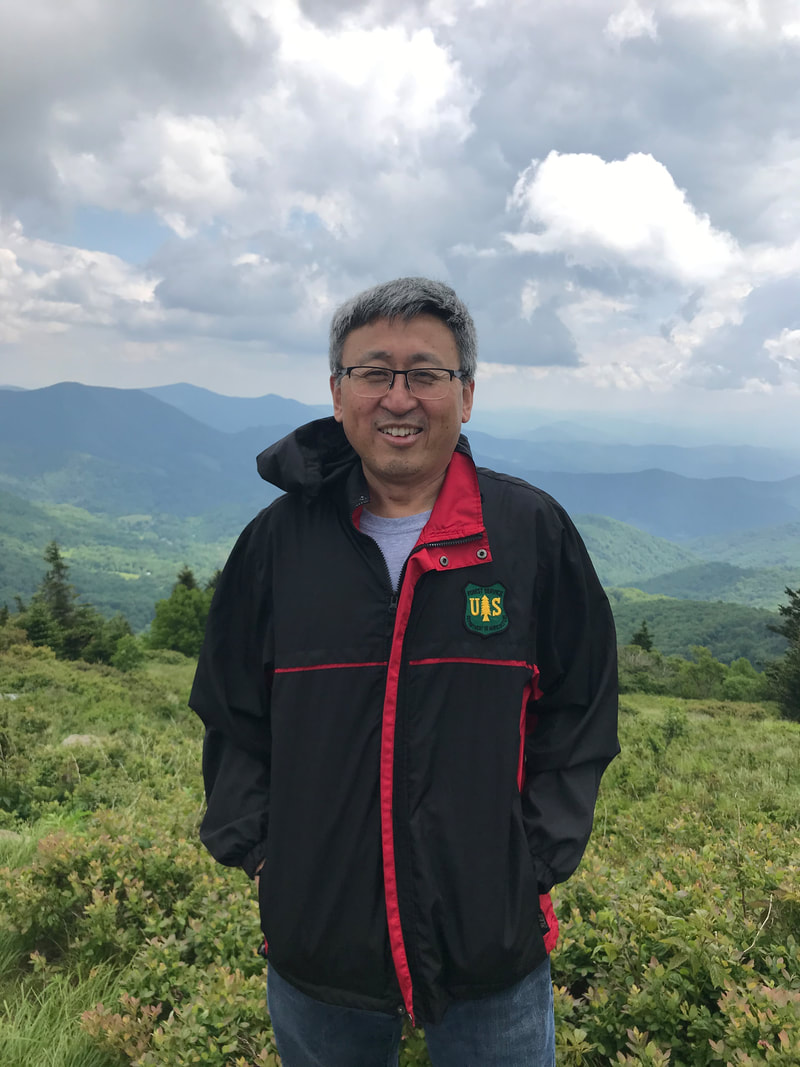Ecohydrology means how forests influence water resources and how water availability affects forest ecosystem functions and services.
What are your undergraduate and graduate degrees in?
I attended Beijing Forestry University for my undergraduate majoring in soil and water conservation (1985) and then a master degree program (1988) in forest hydrology in the same university. Then I moved all the way to the West, and got my Ph.D in forest hydrology (1995) from the University of Florida in Gainesville.
How did you arrive at working in/thinking about ecohydrology?
Forest hydrology studies the interactions between forests, a long-lived organism, and the water cycles, so forest hydrology is ecohydrology. Forest hydrology was rooted in serving the needs of watershed management and solving emerging environmental issues in the 1960s from soil erosion to acid rain. I have enjoyed doing forest hydrology work since I was undergraduate student. One of the reasons I got interested in this field might be that forest hydrology was full of controversy (mystery) over the past century. For instance, how reforestation will affect river flow in different regions? Would revegetation revive the lost springs in many parts of the world? Forest hydrology is getting more important given the importance of forests in carbon sequestration addressing global climate change today.
What do you see as an important emerging area of ecohydrology?
The world is changing rapidly and unpredictably. However, one thing is certain that clean water is in much demand with the rise of human population. With global warming intensifies, so is the water needs by trees and forests. Consequences are dare when the needs by either humans or the ecosystems that people depend on, are not met. Water uses by ecosystems, or the evapotranspiration process, was the center of ecohydrology from the beginning of the ecohydrological science. We have a lot to learn in ET from different perspectives, energy balance, biological, and hydrological processes as influenced by humans. Many of the controversies arise from our inability to quantify ET everywhere (from the leaf to global) and all the time (from minute to millennium).
Do you have a favorite ecohydrology paper? Describe/explain.
My hero in forest hydrology is John Hewlett, the ‘God father’ of forest hydrology. Hewlett’s paper published in the first international symposium on forest hydrology in 1967 opened my minds while I was a graduate student working in the deep subtropical mountains in southern China.
Hewlett, J.D. and Hibbert, A.R., 1967. Factors affecting the response of small watersheds to precipitation in humid areas. Forest hydrology, 1, pp.275-290.
This paper explains the ‘Variable Sources Area Concept’, a stream flow generation theory describing the hydrologic processes in humid small headwater forested watersheds. Forested watersheds have high infiltration rate due to the porous soils with extensive root network and also the high evapotranspiration rate (thus drier soils), so overland flow in forests is rare. However, quick flow or torrent stormflow can be generated in saturated riparian areas near stream channels that grow their length and width during storms. This theory represents a shift of traditional flow generation doctrine (Hortonian flow) to one that reflects the role of vegetation covers, thus the biological processes, in modifying the physical processes of water movement.
What do you do for fun (apart from ecohydrology)?
Taking road trip to national forests and parks with families in different seasons has been fun; Other ‘free’ times, I like cooking following YouTube; I also enjoyed chatting with friends over the internet sharing life experiences.

 RSS Feed
RSS Feed